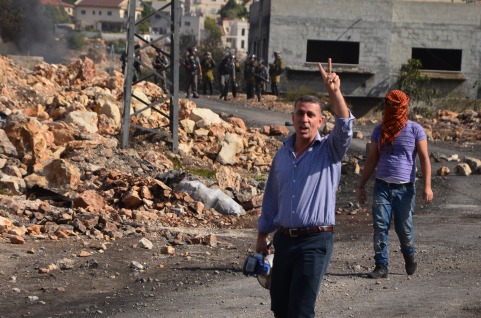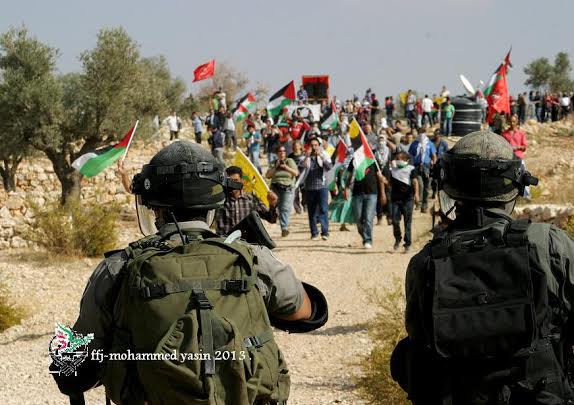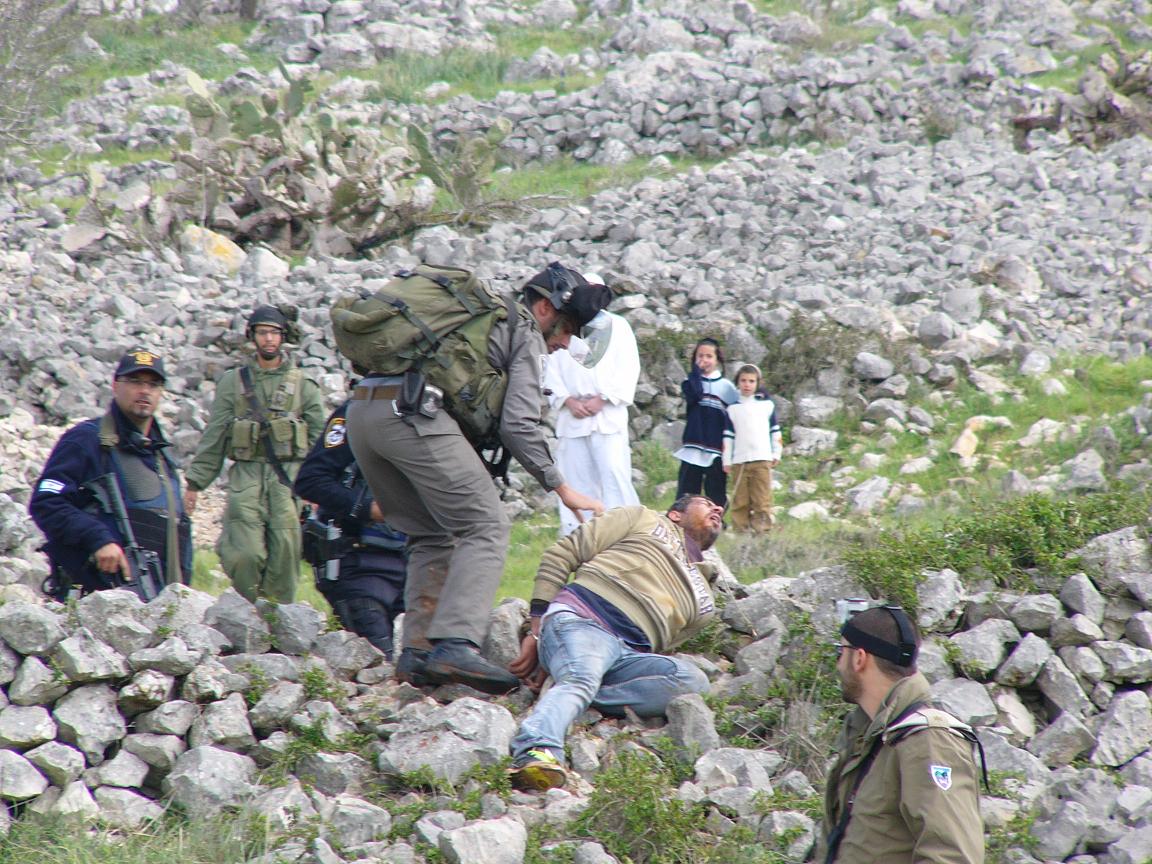Tag: Popular Struggle Coordination Committee
-
Israeli military court sentences Murad Eshtewi to 10 months in prison and a 10,000 NIS fine for participating in Kufr Qaddum protests
4th December 2014 | Popular Struggle Coordination Committee | Kafr Qaddum, Occupied Palestine Salem military court has sentenced activist Murad Eshtewi, from Kufr Qaddum village, to 9 and a half months of prison, with an additional 10,000 shekel fine. Israeli forces arrested Eshtewi on April 29th, 2014 in the middle of the night accusing him of participating…
-
Several injuries during Bi’lin weekly demonstration
16th October 2013 | Friends of Freedom and Justice | Bil’in, Occupied Palestine Yesterday during the weekly Bi’lin demonstration, an Egyptian photographer was injured after being shot by a tear gas canister in his back, Ismaeil Mohamed Abu Rahma (17-years-old) was shot by three rubber bullets in his back and Mohamed Hamed (21-years-old) suffered from tear gas…
-
Trial delayed for the Al-Manatir three
06 February 2013 | International Solidarity Movement, Occupied Palestine Three Palestinians are still being held in detention following last Saturday´s Al-Manatir protest camp in Burin. The three of them are suspected of participating in a march without permission as well as throwing stones. The two adults, Wahid Qadoos and Ashraf Abu Rahma, are also facing…



